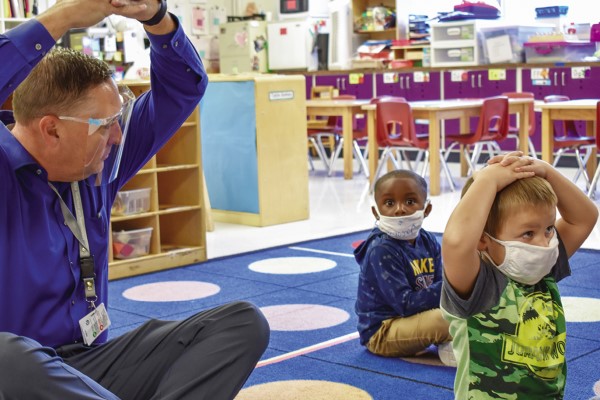How AASA’s Cohort Sparked My Early Learning Knowledge
January 01, 2021

Year after year, as a principal and then a superintendent, I have been involved in planning and allocating school district resources for remediating students who are not performing at grade level or are barely doing so.
For the most part, students entering the year below grade level leave the year below grade level. They make progress but not nearly enough to catch up to their grade-level peers. This is a frustrating cycle for students and educators.
Year after year, I also have helped plan and allocate district resources for Tier 1 instruction. Compared to remediation, this is far easier and less costly, and it involves a much greater staff-to-student ratio. These students usually excel, explore more subjects of their own choosing and fully experience the joy in mastery learning.
The difference between the two circumstances is that one group of students begins the race that we call school positioned at the starting line, ready to learn and thrive, while the other group starts far behind its peers and spends the entire race simply playing catch up. Usually, that gap between starting lines seemed too great to overcome for those who start far behind — or so I assumed. Enter the AASA Early Learning cohort.
Like-Minded Colleagues
I was looking for some personal professional development that would help me understand where learning gaps start, the systemic issues that cause them and how I might help our district avoid the gaps before they ever begin. As a former high school mathematics teacher and middle school principal, my only experience in an elementary classroom was helping my wife with her 1st-grade bulletin boards, organizing leveled reading materials and creating phonics activities.
AASA’s cohort, which I’ve been part of for the past three years, has placed me in the midst of a group of like-minded, passionate colleagues to explore, research and grasp more fully the issues of poverty, family engagement and essential learning milestones during a child’s developing years. We have visited awesome early learning programs across the country, partnered with nonprofit organizations (Waterford and the Hunt Institute), professional associations (notably the National Association for the Education of Young Children) and governmental entities (Head Start).
As a result of my involvement in the cohort, I have developed my own beliefs related to early childhood learning. I have focused school district resources to help close learning gaps before they ever get started. I created a director of early learning position and have hired two early learning specialists who work with teachers across the district.
I also have developed a network of professionals across the country whom I can call on for advice and use their expertise to help me do my job better. We meet periodically and keep in touch through Twitter chats and posts using the #AASAEarlyEd hashtag.
An Online Option
The school district I lead in north Texas, about two hours from the Dallas-Fort Worth metroplex, has a diverse enrollment of 14,000 students spread out across 26 campuses. We operate two Head Start centers, a pre-kindergarten campus and pre-K or Head Start classrooms in most of our 16 elementary campuses. About 20 years ago, the district transitioned to full-day pre-kindergarten, even though state funding only provided for half-day services.
Since 2018, we also have offered a homebound pre-K program called UPSTART that combines all the essential skills from a traditional pre-K environment. The online curriculum prepares children for kindergarten in the comfort of their home while helping parents serve as educators. Learning how to support parents through this program informed our efforts with remote learners during the pandemic.
Additionally, we have a Parents as Teachers program that enables us to send a certified educator into the homes of qualifying families for about two years prior to their children entering kindergarten, empowering parents with the skills to serve as their
child’s first teacher.
MICHAEL KUHRT is superintendent of the Wichita Falls Independent School District in Wichita Falls, Texas.
@Kuhrteous
Advertisement
Advertisement
Advertisement
Advertisement



